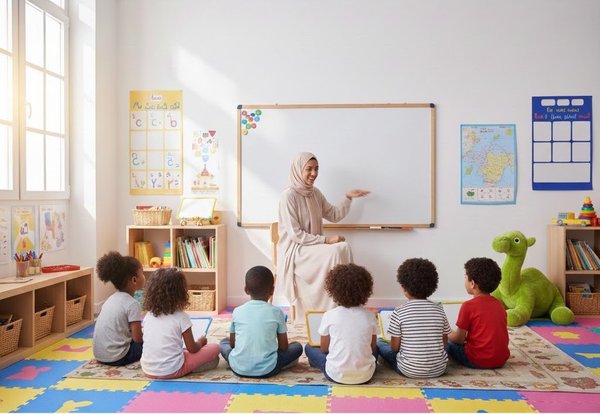Explore Our Content Universe
From engines to entrepreneurs, recipes to real estate
Cars, vehicles and driving
BusinessBusiness and economy
CookingRecipes and culinary arts
Finance & real estateFinance, investment and property
HealthHealth, wellness and wellbeing
Home & livingHome, decor and lifestyle
NewsLatest news and current events
PetsPets, animals and companions
SportsSports, fitness and competition
TechnologyTech, gadgets and innovation
Woman / fashionFashion, beauty and lifestyle
The automotive articles are incredibly detailed and well-researched. I've learned more about engine restoration here than anywhere else. The cooking section is a bonus I didn't expect but absolutely love.
Latest articles
Our recent publications

Can Electric Cars Truly Transform Urban Mobility in the UK?
...

What Innovations Are Transforming UK Automotive Safety?
...

What role does AI play in enhancing UK automotive safety features?
...

How is Emerging Technology Reshaping the UK's Business Landscape?
...

What strategies can UK businesses employ to enhance cybersecurity?
...

How can you create a vegetarian version of a traditional Cornish pasty?
Crafting a delicious vegetarian Cornish pasty means adapting traditional Cornish pasty ingredients to exclude meat witho...

How can you make a mouth-watering steak and kidney pie?
Choosing the right steak and kidney pie ingredients is crucial for a classic, flavorful dish. Start with selecting quali...

What are the secrets to making perfect Yorkshire puddings?
Mastering the art with traditional technique...

How Does UK Real Estate Investment Impact Personal Wealth Growth?
Investing in UK real estate plays a pivotal role in personal wealth growth by combining direct and indirect financial be...

What Are the Potential Benefits of Investing in UK Real Estate?
Investing in UK real estate offers a robust blend of advantages, making it a compelling choice for both new and experien...

What Factors Are Driving the UK Real Estate Market's Growth?
Understanding the economic drivers behind the UK real estate market reveals how factors like interest rates and employme...

What are the challenges facing the UK's National Health Service?
Understanding the NHS challenges requires acknowledging persistent issues like staff shortages and funding constraints t...

What innovations are driving change in the UK's healthcare system?
In recent years, healthcare innovation in the UK has accelerated significantly, largely driven by advancements in UK med...

What measures are in place to enhance patient safety in UK hospitals?
Ensuring consistency and high standards across UK healthcare...

What are the best plants to enhance indoor air quality in UK homes?
Improving indoor air quality is gaining importance in UK homes due to factors like increased time spent indoors, urban p...

What are the best ways to enhance natural light in UK interiors?
Enhancing brightness in UK home interiors begins with simple, practical steps to maximise daylight indoors. One of the m...

What are the top tips for creating a minimalist UK living space?
Starting a minimalist living UK journey begins with a thorough assessment of your current space. Identify items that no ...

Arabic courses for kids: a fun journey to reading and reciting
...

Family fun and relaxation at campsite auvergne awaits you
The Auvergne region captivates families with its stunning volcanic landscapes and rich natural heritage, making it an id...

Find your dream home with barnes mont-blanc real estate
The best BARNES Mont-Blanc real estate agencies in the Alps offer unparalleled expertise in navigating the exclusive wor...

Find your perfect beach apartment to rent in carboneras
What makes the perfect Mediterranean getaway? Carboneras offers premium vacation rentals with stunning views over the Al...

How Is Brexit Shaping the Future of the UK?
The economic impact of Brexit on the UK economy post-Brexit has been significant, with changes observed in various secto...

How Can British Pets Help Improve Your Mental Health?
...

How do UK pet owners deal with pet separation anxiety?
Pet separation anxiety is a distressing condition for both pets and their owners. It occurs when pets struggle to cope w...

What are the best UK pet-friendly accommodations for vacations?
Travelers who own pets are increasingly seeking out accommodations that welcome their furry companions. As the trend of ...

How are UK schools integrating sports into their curriculum?
The national curriculum requirements for physical education in the UK mandate that all schools provide regular opportuni...

How do UK sports teams foster youth talent development?
Youth development is a cornerstone of sporting success....

What role does grassroots development play in the success of UK sports?
Grassroots development in UK sports refers to the foundation level of sports participation, focusing primarily on broad ...

How is the UK government supporting digital transformation?
The UK government digital strategy centers on adopting a digital-by-default approach, ensuring that public services are ...

How is UK technology transforming traditional industries?
...

